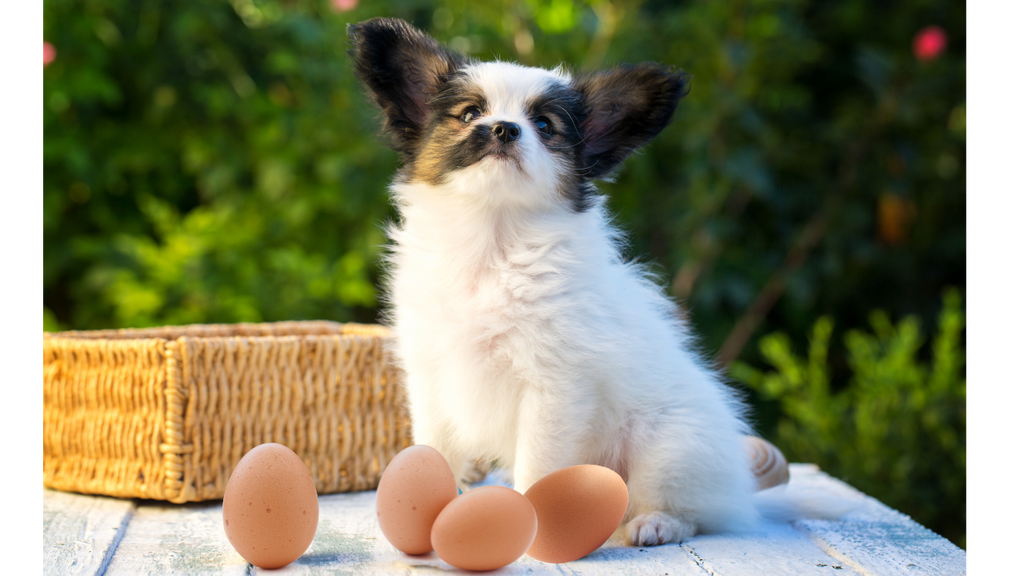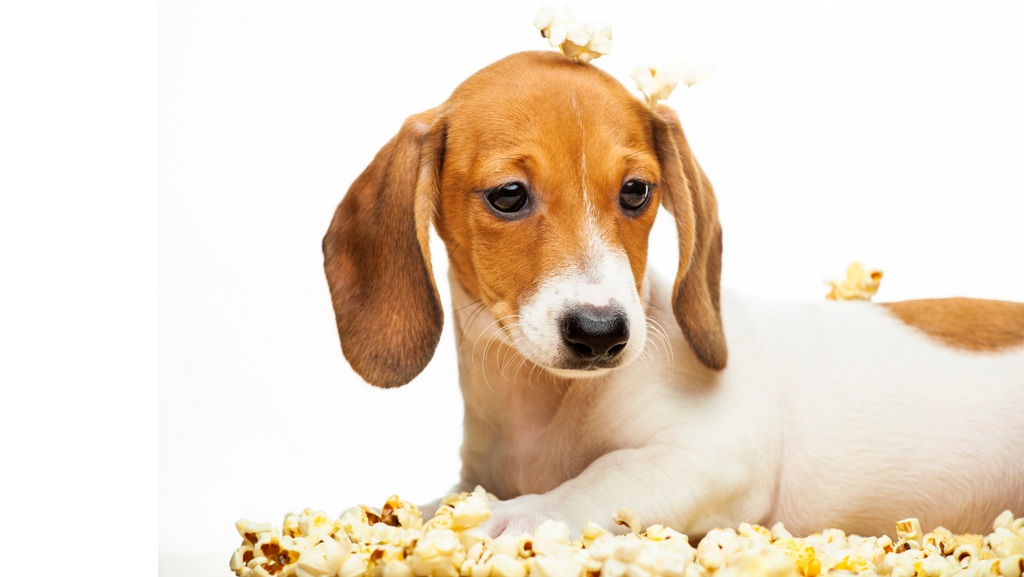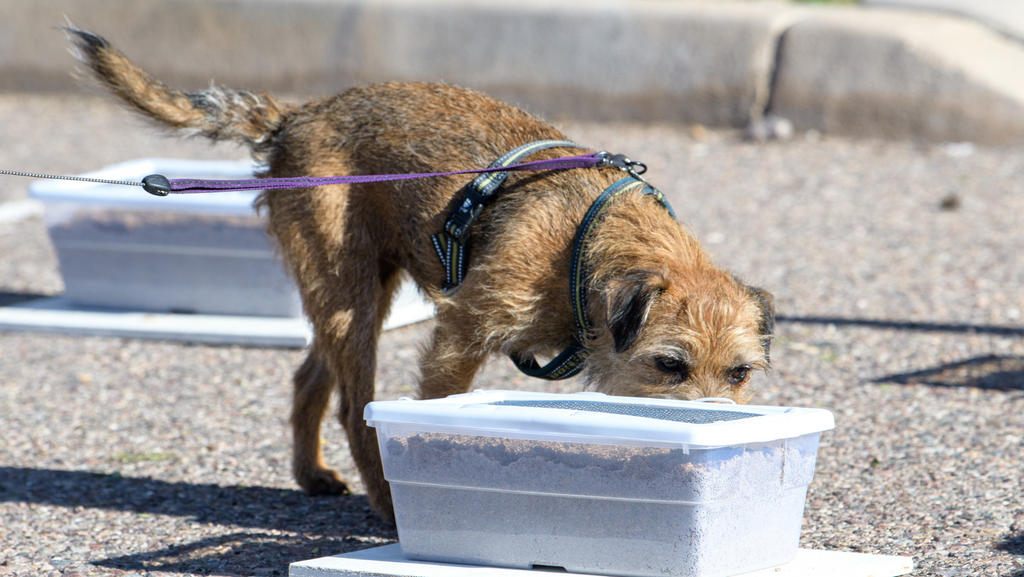Large Breed Puppy Food: What You Need to Know
 Bringing a new puppy into your life is one of the most exciting times of dog ownership. And when it comes to large breed puppies, this excitement is super-sized.
Bringing a new puppy into your life is one of the most exciting times of dog ownership. And when it comes to large breed puppies, this excitement is super-sized.
Not only will your large or giant breed dog stay in puppyhood longer, but they will also become larger than life as they grow and grow some more! However, large breed dogs come with a few unique dietary needs. Which is why so many owners ask, “‘What should I feed my puppy?”
Well, we’re here to help make heads and wagging tails of large breed puppy food knowledge. Because the better you feed your puppy now, the more years you will have with your best friend later!
What Makes Dog Food for Large Breed Puppies Unique?
Large breed dogs grow considerably more than medium and smaller breed dogs. A puppy that is born under half a kilo can grow to 35 kilograms or more--which is a much faster rate than humans that take years to reach 35 kilograms, and most babies are born at around 3.5 kilograms.
Most of a large breed’s puppy’s growth occurs in the first 10 months of their lives, and they continue growing until they’re about one year to a year-and-a-half of age [1]. This growth results in a large breed dog’s need for special considerations diet-wise.
Preventing Orthopedic Diseases
Because giant and large breed dogs grow so quickly and to such massive sizes, they’re more vulnerable to joint, skeletal, and muscular disease [2].
Growing too rapidly can lead to a greater risk of:
- Hip dysplasia
- Elbow dysplasia
- Panosteitis
- Osteochondrosis
- Hypertrophic osteodystrophy
- Retained ulnar cartilage core
How Does a Large Breed Puppy Food Benefit Your Best Friend?

Accelerated growth means giant and large breed puppies need the right amount of calories and nutrients to support healthy cell production while preventing them from growing too heavy for their developing joints.
Large breed puppy food is formulated to provide these puppies with the right amount of calories along with the vitamins, minerals, and other nutrients for a lifetime of health.
How Does Large Puppy Food Differ from Small or Medium Breed Food?
Your puppy’s food is formulated by a veterinary nutritionist to support their body as they grow. The levels of calories, vitamins, and minerals will differ depending on how quickly your dog’s breed is expected to grow and their final size.
Large puppy diets are lower in:
- Fats
- Vitamin D
- Calcium
- Phosphorous
Overnutrition: When Well-Meaning Dog Owners Make a Big Mistake
One of the most common blunders many large breed owners make is to provide their puppies with too much supplemental nutrition. The result is a puppy that is literally too big for their body to adequate support, leading to strain and pain for their joints.
Shouldn’t Large Puppies Have More Calcium?
While we often associate calcium with strong bones, it’s important to keep in mind that calcium plays a more intricate role in your dog’s body functions and puppy’s bodies process food differently than full-grown dogs.
Before a dog reaches 6-months of age, their body cannot regulate how much calcium their intestines absorb. Once a dog hits six months old, their body will automatically pull the right amount of calcium from their diet. However, before this point, their body will absorb all calcium that passes through their intestinal tract. This excess calcium does find its way to a puppy’s bones and joints, resulting in abnormal growth.
Anything Else Large Puppy Owners Should Know About Their Dog’s Diets?
All puppies go through growth spurts. During these times, your puppy may need more calories. So, re-evaluate your dog’s diet by weight and veterinary support every two weeks.
Foods formulated for large breed puppies often have higher levels of glucosamine, chondroitin, and Omega-3 fatty acids.
Reputation is worth its weight in puppy kisses! Always research the brand you feed your puppy and talk to your dog’s nutrition with your vet. While there are some clear guidelines that can help you choose the best food for your dog, every dog is unique and may have unique needs.
What Large Breeds Need Extra Consideration?Any large breed that is at high risk for obesity needs to be monitored more closely for their caloric intake. This can be as simple as measuring your dog’s portions for every meal. Use your dog’s food’s caloric density to figure out how much food they need daily.
Large breeds that are predisposed to obesity should eat food with a lower caloric density, so they feel fuller while consuming fewer calories.
Change Your Dog’s Diet for Post-Spay or Neuter Time
After your doggo gets fixed, their body will immediately decrease the amount of estrogen and androgens. This reduces their metabolic rate--so they will need fewer calories daily [4]. Additionally, many dogs feel a bit crummy after surgery which can make them lose their appetite. The time of your dog’s surgery is a great time to ask your vet about adjusting your puppy’s diet to conform to their new needs.
Watch Your Puppy’s Treat Intake
Between your dog’s adorable puppy eyes and going through training, it’s easy to overdo it when it comes to the number of treats your dog receives. Even the healthiest treat for dogs do not account for all the vitamins, minerals, and other nutritional elements your dog needs. This is why it’s important to keep your dog’s treat levels to under 10% of their daily caloric intake [5].
How Often Should You Feed Your Puppy?
Most puppies should be fed between two to four times per day. Their daily caloric intake should be divided among the number of meals you are feeding your puppy. Understanding your puppy’s daily meal cycle can provide you insight into when to feed them.
Does My Dog Need Large Breed Puppy Food?
Any dog who will wind up heavier than 35 kilograms is considered a large breed. Dogs that will grow to over 45 kilograms is considered a giant dog breed.
What about my mixed-breed dog? Your vet can give you an estimate of what to expect in terms of your dog’s potential growth.
Balance Is Best for Big Breeds

When it comes to feeding a large breed puppy, it’s always best to leave the details to your veterinarian. This includes homemade dog food. Veterinarians recommend waiting for a dog to reach at least a year of age before switching to home-cooked foods. And even at that time, it’s important to verify with an animal nutritionist that the diet your dog receives is nutritionally balanced [3].
It’s always best to feed your puppy a diet that is designed for their specific needs.
Best Large Breed Puppy Food Australia
When it comes to providing your beloved puppy with the best diet for their needs, it’s all about quality ingredients and being mindful of your dog’s individual needs. Be mindful of growth spurts and increase calories as your dog grows. Never hesitate to ask your vet if you have questions regarding your puppy’s diet or health.
As your large breed puppy transforms from a pup to an adult dog, Petzyo’s kibble and raw foods will provide your dog everything they need for an active, healthy life.
References:
[1] https://dogdorable.com/how-fast-do-dogs-grow/
[2] https://www.akc.org/expert-advice/nutrition/best-large-breed-dog-food/
[5] https://www.preventivevet.com/dogs/how-many-treats-you-can-give-your-dog-during-training





